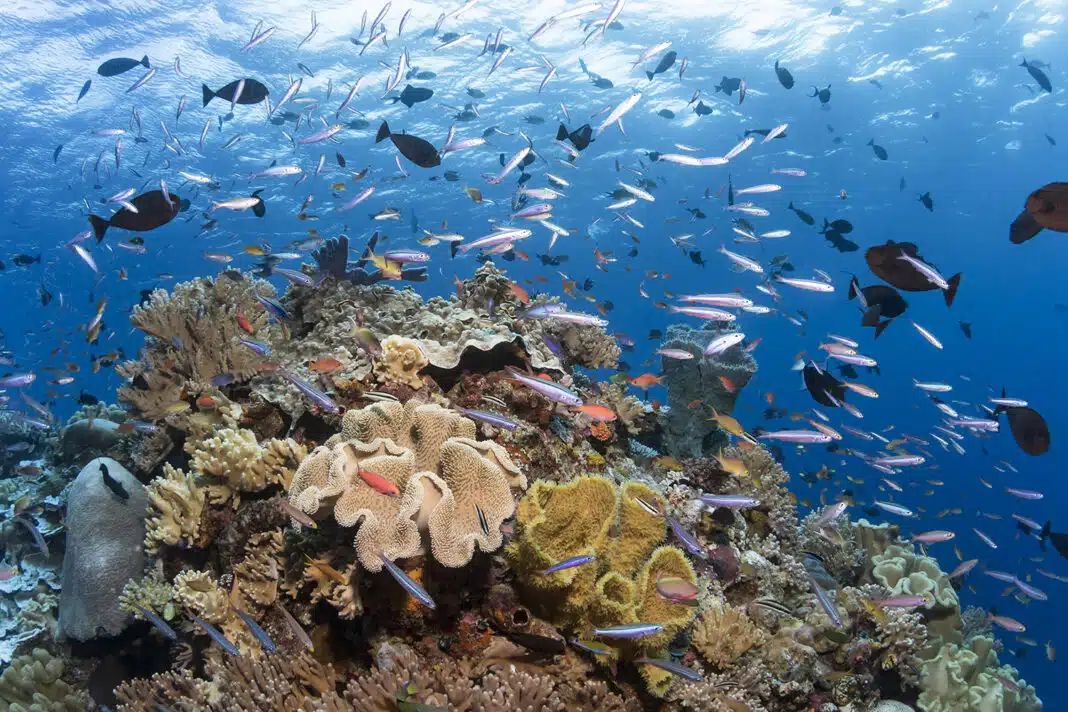Researchers from the University of Sydney, WCS, and partners have found that nearly 10% of all coral reef fish exist due to international conservation efforts.
The study was conducted at 2,600 reef locations, and the scientists have found that nearly 10% of the fish population owes its existence to current international protections.
The finding opens the door to further protecting coral reef populations. By increasing protections, we can hope that more populations will be able to thrive.
According to Professor Joshua Cinner, Director of the Thriving Oceans Research Hub:
“Millions of people depend on reef fish for their livelihoods and nutrition. However, overfishing is severely threatening the wellbeing of coastal communities right across the globe. Protection can help boost fish stocks and have flow-on benefits for people. Our study is a bit of a health check for global coral reef conservation. On one hand, we found that conservation efforts have made a contribution to the amount of fish on global coral reefs, which is promising. But on the other, this contribution appears quite modest and our study makes clear just how much room there is for improvement.
“Our modelling showed that we could get up to 28 percent more fish on coral reefs globally by increasing the coverage of fully protected reefs to 30 percent – but only if these reefs are chosen strategically.”
While Dr. Iain Caldwell from the Wildlife Conservation Society added:
“No-take zones are punching above their weight, especially when they are well complied with, but they aren’t the only way to increase fish populations. While prohibiting fishing provides the biggest boost to fish biomass per unit area protected, other forms of fisheries management can also be effective and may be more amenable for people who depend on reef fish for their lives and livelihoods.”

